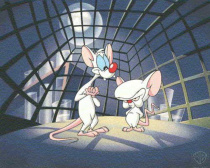
It was my turn next. Though ten other beginners had to perform before me, I was forced to sit in the cushioned straight back chair and listen to them all. Thoughts about my piece, a simplified version of The Entertainer, whirled through my head as I stared down at the Piano Recital program. Swinging my sandaled feet that barely touched the gray carpet, I tried to replay the first notes in my head and imagined my small fingers on the white keys. Instead, a dark void blanketed my memory. As if my heart hadn’t been pounding hard enough, it now reverberated through my chest and up to my ears. Panic set in just as the five year old Asian boy in his pressed white collared shirt finished his final cadence and bowed at the audience’s applause. At my name being called, I slipped off the chair and walked stiffly, almost detached, to the piano and sat on the bench. For the twentieth time I wiped sweaty, shaking hands along my plain black skirt, then raised them above the keyboard. The piece started fine, at least the first four measures. The black void returned, and all I could do was return to my seat, humiliated.
Even at a young age, the plague of a tight stomach, wet palms, and runaway heartbeat accompanied all of my attempts at performance. Never could I perform as well as I practiced. This became the standard for every piece I played. Learn the notes. Practice it so much it’s memorized, and then botch it when playing for a crowd. An obvious answer would be stage fright; being scared of what others think and afraid of screwing up. This is certainly a major cause of not doing the best possible. Nerves overcome the body and cause shaking and slippery hands. The fingers can’t hit the correct key. Three keys are played instead of one, and it throws off your focus so that you forget what comes next.
The problem is that I know I can play better, but the audience watching me doesn’t. Often times people’s fears come through in strange situations, and others don’t know how to react to them. Many end up thinking you are stupid or less intelligent than you are. They give you strange looks of pity and frustration when in reality, expressing yourself is the problem, not your brain. This is why I usually avoid people’s eyes when I make mistakes during a performance or become flustered in front of a crowd.
My nervousness in playing piano bled through into public speaking. Years later, in my ninth grade Speech class the same symptoms would haunt me the whole morning leading up my speech. The clenched innards, soaked palms and racing blood would prelude to forgetting the entire speech. But this time I was graded on my performance, so going back to my seat unfinished was not an option. Standing in front of the fifteen other classmates staring at me and at their desks, I looked in the corner of the room until any words came to my mind. Eventually finishing my speech, the only good comment by my teacher could make was “nice recovery.”
Unfortunately, these feeling were not isolated to particular instances where I was in the spotlight. Many fears are shown in specific only specific occasions like in front of huge crowds, but fears often enter into life at the most inopportune times. Throughout high school, they spilled over to daily activities like ordering food at restaurants and paying for my purchases at stores. My first time paying at Barnes & Noble I got change out of my purse and tried counting it out to give to the cashier, but I blanked out and had forgotten how to count. I floundered around until finally asking the cashier (who was looking at me strangely) to count the change for me. It wasn’t as if I was stupid. Math was actually one of my better subjects in high school, but the pressure I put myself under made me unable to function in this every day situation. And though many people share my fear of public speaking and performing in front of peers, the every day nerves may perhaps only apply to some like myself. While society is required to make it easier for the physically handicapped or disabled, the individual is left to cope with his internal short comings, such as phobias, by himself. Acute nervousness can’t be truly cured by medicine unlike common ailments. This makes me think that this may be some kind of a phobia. There may be a name for it somewhere, though I don’t know what. To give an extreme example, the movie “What About Bob?” characterizes a man, Bob, who won’t touch door knobs, who carries Kleenex with him everywhere, and who is scared of absolutely everything.
high school, but the pressure I put myself under made me unable to function in this every day situation. And though many people share my fear of public speaking and performing in front of peers, the every day nerves may perhaps only apply to some like myself. While society is required to make it easier for the physically handicapped or disabled, the individual is left to cope with his internal short comings, such as phobias, by himself. Acute nervousness can’t be truly cured by medicine unlike common ailments. This makes me think that this may be some kind of a phobia. There may be a name for it somewhere, though I don’t know what. To give an extreme example, the movie “What About Bob?” characterizes a man, Bob, who won’t touch door knobs, who carries Kleenex with him everywhere, and who is scared of absolutely everything.
Many people never get over their fears whether it’s tangible or not, like the common arachnophobia and claustrophobia. But some fears experienced enough times often causes the fear to lessen, if not disappear altogether. At a Vietnamese restaurant with my older sister about four years ago, I decided to try and conquer my fear of attention by ordering for the both of us. The Asian waiter wearing a white collared shirt came by to take the order, and I was fully prepared to give him answer. My same symptoms came up, and to say the least my attempt failed. My sister ended up ordering for us, but the important step of facing that fear still brought me closer to overcoming it.
As the years go by, the symptoms keep diminishing though they never go away completely. This nervousness is a part of me that may always be there, but I will never stop facing it, especially as it’s unavoidable. The occupation I am pursuing, piano performance, brings out the irony of my situation. At one point I thought I could never get over my fear and would never be able to perform well in front of others. I have obviously been changing and with experience as well as new approaches to it, I can gain confidence in my ability. Last summer, I entered a piano competition expecting to play far below my level. I was pleasantly surprised to find that as I started my Bach in front of the judges, I was able play my best despite the rise of my nerves.

